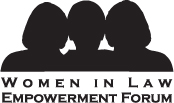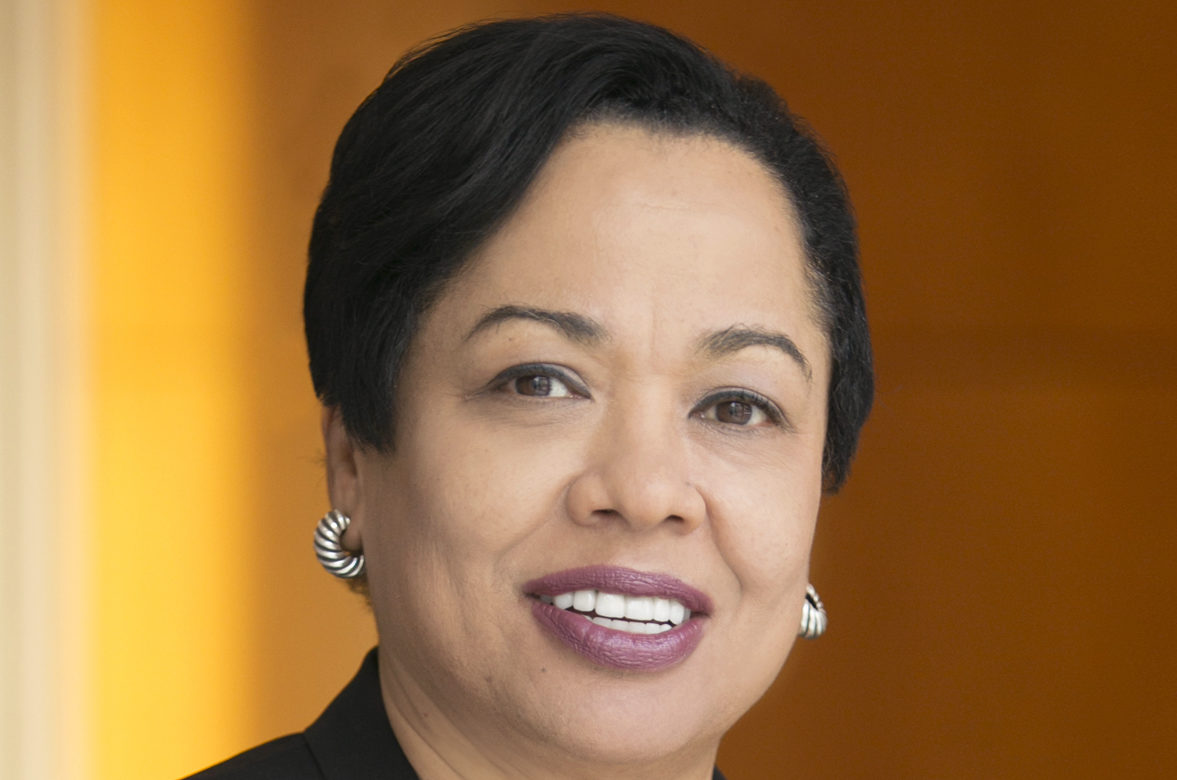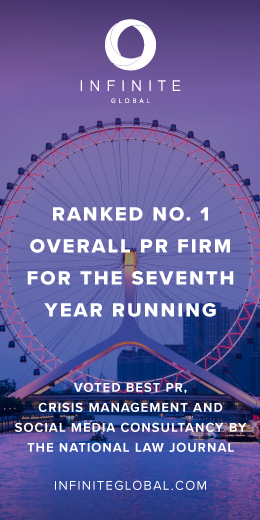It’s a long way from the rough Philadelphia neighborhood where Grace E. Speights grew up to the swanky confines of a Manhattan gala, where she was recently named Attorney of the Year by The American Lawyer for her work in the #MeToo era. As we learned, it was a path filled with helping hands along the way. Speights, a WILEF board member, recently spoke to The WILEF Tribune about her career at Morgan Lewis, what makes it a place that allows women to thrive, and the impact of the #MeToo movement.
Tell me about your path to Morgan Lewis.
I was the first person in my family to graduate from high school and go to college, let alone law school. At the beginning of my second year, I had not a clue about law firms. My resume was pretty basic—it was where I went to college and my law school. I didn’t have those things on my resume that people who knew about what it takes to get into big firms did, like LSAT scores and law school grades.
I was just a plain student at George Washington but I dropped my resume with Morgan because I was from Philadelphia. I didn’t know anything about Morgan before that second semester but did some research on Philadelphia firms because I thought I was going to go back to Philadelphia to do justice.
Lo and behold I got an interview. The partner who interviewed me was Mike Kelly from the Washington office. About 10 minutes into the interview, after he had asked me all of those questions about my LSATs and my grades, he was surprised by the answers.
Needless to say, because my mother taught me how to work hard, I had great grades. He assumed, because those things were not on my resume, they weren’t any good. But after learning the truth, he spent the next 10 minutes telling me why I needed to put this stuff on my resume. He said, “Suppose I didn’t ask those things?”
I got an offer and was a summer associate in 1981. After a federal clerkship, I originally went to Morgan in Philadelphia but then got engaged to someone who was back here in D.C. and so I was transferred to the D.C. office. The rest is history.
Was there a moment or a case, a year, or period of time when you thought “I am going to be pretty good at this”?
I think it was more a client and a partner. Bill Gardner was really just a very good mentor, knew my background, saw a lot of promise, and really invested in me and put me in front of clients. In my fifth or sixth year, there was one client that Bill had and that I did a lot of work for. And Bill said to me, “This client never calls me anymore; they love you. They call you all the time. This is fantastic, just continue to grow the relationship,” and I did. And then I made partner while still in the litigation group in 1991. And to Bill’s credit, the day my partnership became effective, Bill transferred the client to me on the firm’s paperwork. It was the first client that I was responsible for at the firm. Because of the confidence Bill showed in me, I thought “I can do this.”
What has Morgan Lewis done well in terms of promoting and retaining women?
As I look around and see women in leadership, including our chair, I think it starts with culture. We don’t look at diversity as initiatives. I always say initiatives come and go. It depends on who’s in charge and those type of things. We look at diversity being within the fabric of the firm.
We just have a culture where anybody can do anything here as long all they focus, they work hard, they do great work, and don’t care about who gets the credit. So I think that has helped a lot. In everything we do, we think about diversity.
When I was coming along, there wasn’t a diversity and inclusion focus. But what made women and diverse lawyers successful was the fact that we had male partners, all of whom were Caucasian, saw that we could provide much better client service if we had broad diversity with different experiences. And male partners were willing to sponsor people and put their necks out. I think about Bill Gardner. I think about Mark Dichter, who used to head our labor and employment department and was my official mentor when I came to the firm. I mean he went out of his way to make sure that I felt included.
I’ll never forget when my youngest child went off to college, the firm’s chairman at the time, Fran Milone, said to me, “It’s time to get you in leadership now, okay?”
He had said, “I know you’re busy with your practice and the kids but the last kid is gone, so no excuses.” And Fran started appointing me to a lot of partner committees. And that’s what you needed, focused attention. People have to be deliberate about it, and I think we have been very deliberate about it.
You have such an interesting purview into this cultural moment that we’re in right now. How would you characterize the strength of the #MeToo movement and where it goes from here?
I think it’s a complete and permanent change. I really do. I think back to the Anita Hill hearing and following that, there was a real focus on training and things of that nature. But I know what we all recognize now is that policies and procedures, no matter how good they are within an organization, aren’t enough if you don’t have a culture that is committed to and provides for what I would call safe, inclusive, and respectful workplaces. And it has to start at the top.
Training that we used to do was what I would call rote compliance training. And it was with the purpose of saying what the law provides, that discrimination and retaliation are prohibited. But that kind of training we know now didn’t work.
We are seeing now less training and more of discussion and a willingness to talk about what type of conduct is appropriate, what type of conduct is not. It’s more than just anti-sexual harassment and anti-discrimination. It’s about being respectful–I mean, it’s just that simple. As long as we focus on culture, I don’t think we’ll go back to where we were.



